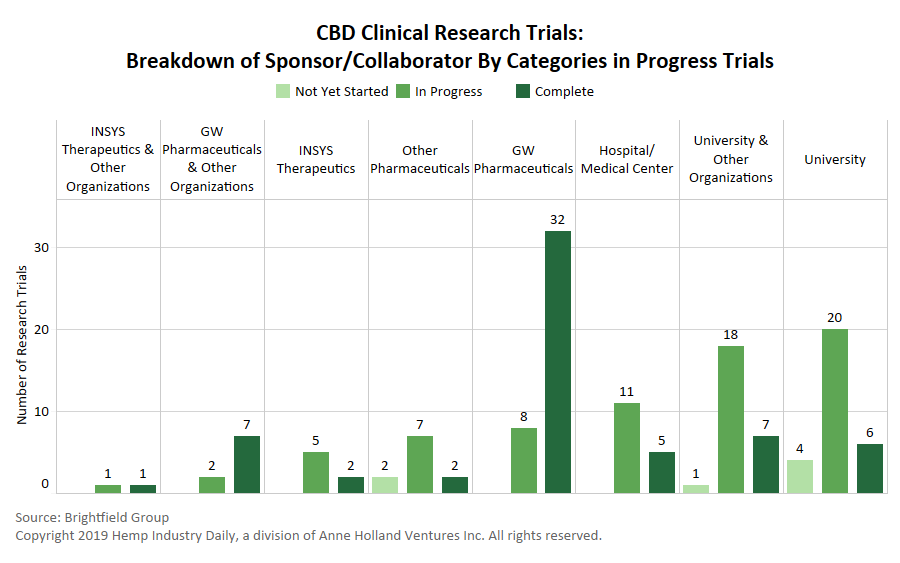A surge in academic research about hemp-derived cannabinoids is giving CBD companies new opportunities to find university partners to validate mountains of anecdotal evidence about cannabidiol’s health benefits.
“We’re taking powerful anecdotal evidence and bringing some research to it, to quantify what we all know to be true about CBD,” said Jay Hartenbach, CEO of Medterra CBD, which is sponsoring research at Baylor College of Medicine in Houston.
Among other things, Baylor will use Medterra products to research whether CBD helps cartilage damage associated with arthritis.
Looking for validation
No matter what the findings are, Hartenbach said, investing in university research makes good business sense.
“We want to advance CBD and introduce it into the mainstream,” said Hartenbach, whose company is spending six figures on the Baylor partnership.
Dozens of universities are publicly exploring cannabis research now that low-THC hemp varieties are legal.
According to the Brightfield Group, a Chicago-based cannabis market research firm, at least 38 universities are currently leading or participating in clinical CBD trials.
There are now more CBD clinical trials sponsored by universities than by private pharmaceutical companies, the research firm reported in its 2019 U.S. CBD Market Report.
Win-win for universities
Academic institutions are eager to look into hemp and its products, and the pace of research will only increase in the coming years, predicted Utah State University horticulture professor Bruce Bugbee.
“Growers have been interested in us studying cannabis for many years, but we couldn’t take their money because it was illegal at the federal level,” Bugbee told Hemp Industry Daily. “This changed with the 2018 Farm Bill.”
Bugbee, who is studying hemp yields under LED lights, said cash-strapped academics and graduate-level researchers are just as interested as hemp and CBD producers in learning more about the plant.
“I expect a year from now, the number of universities studying it will double or even triple,” he said.
Worth the wait
Academic research can take years, but the payoff could be enormous if it leads to broader acceptance of hemp and CBD products, Hartenbach said.
“You’ve got all these articles popping up online asking, ‘Is CBD real or is it a fad?’ We hope with this research we’ll find out what CBD can and can’t do for people,” he said.


